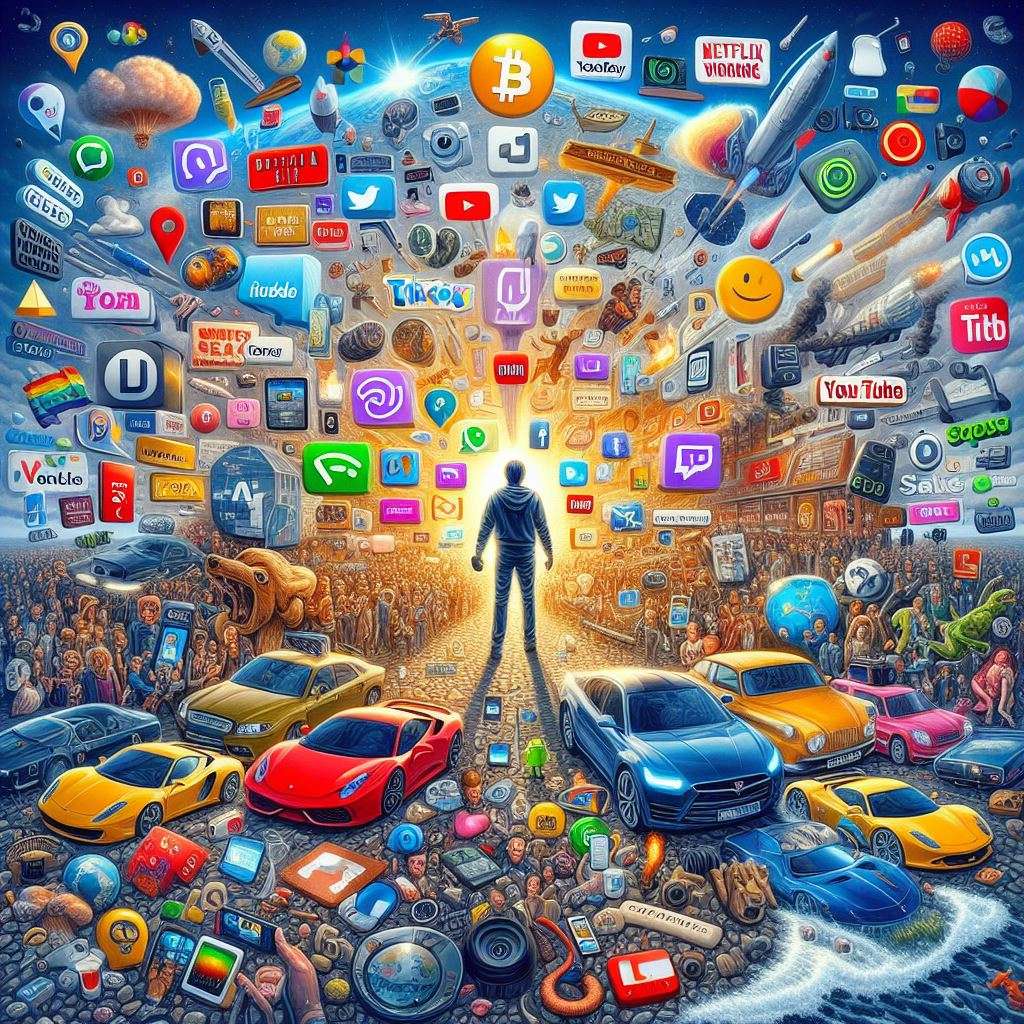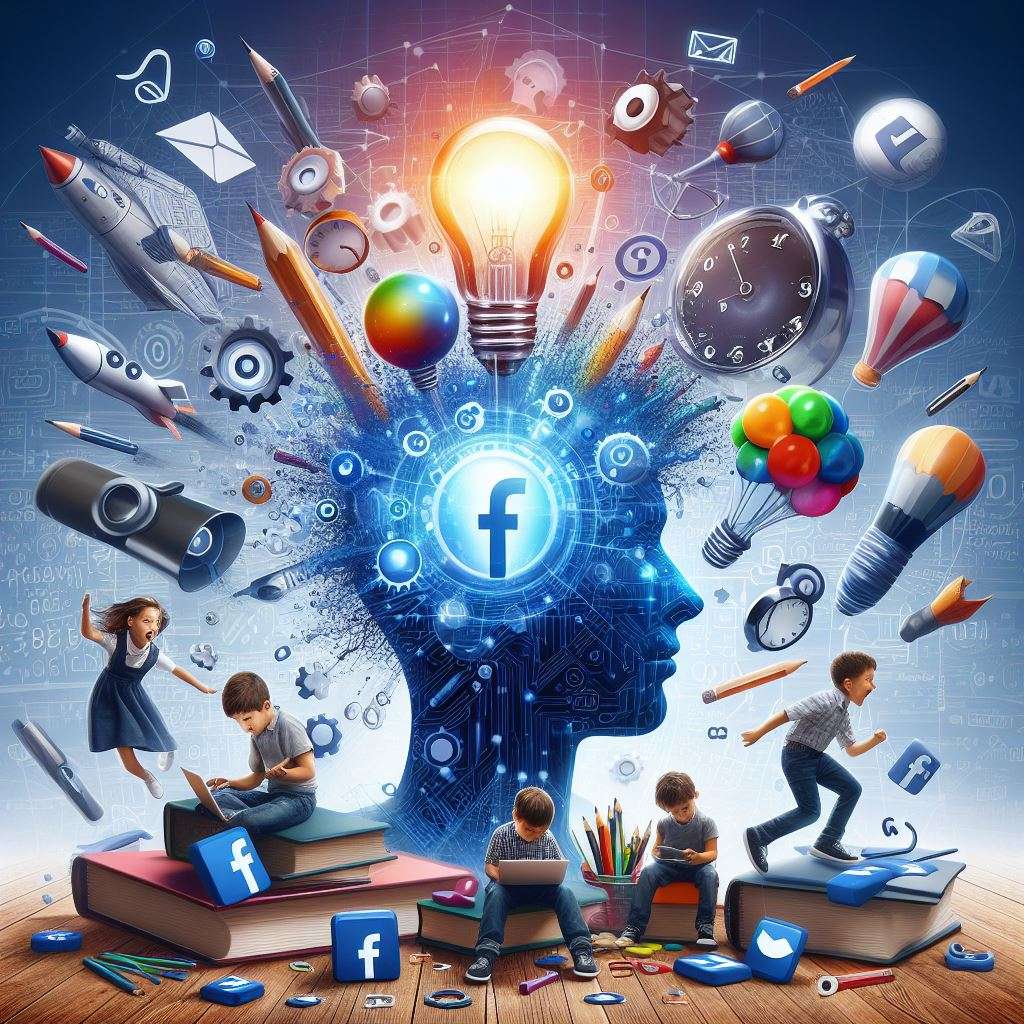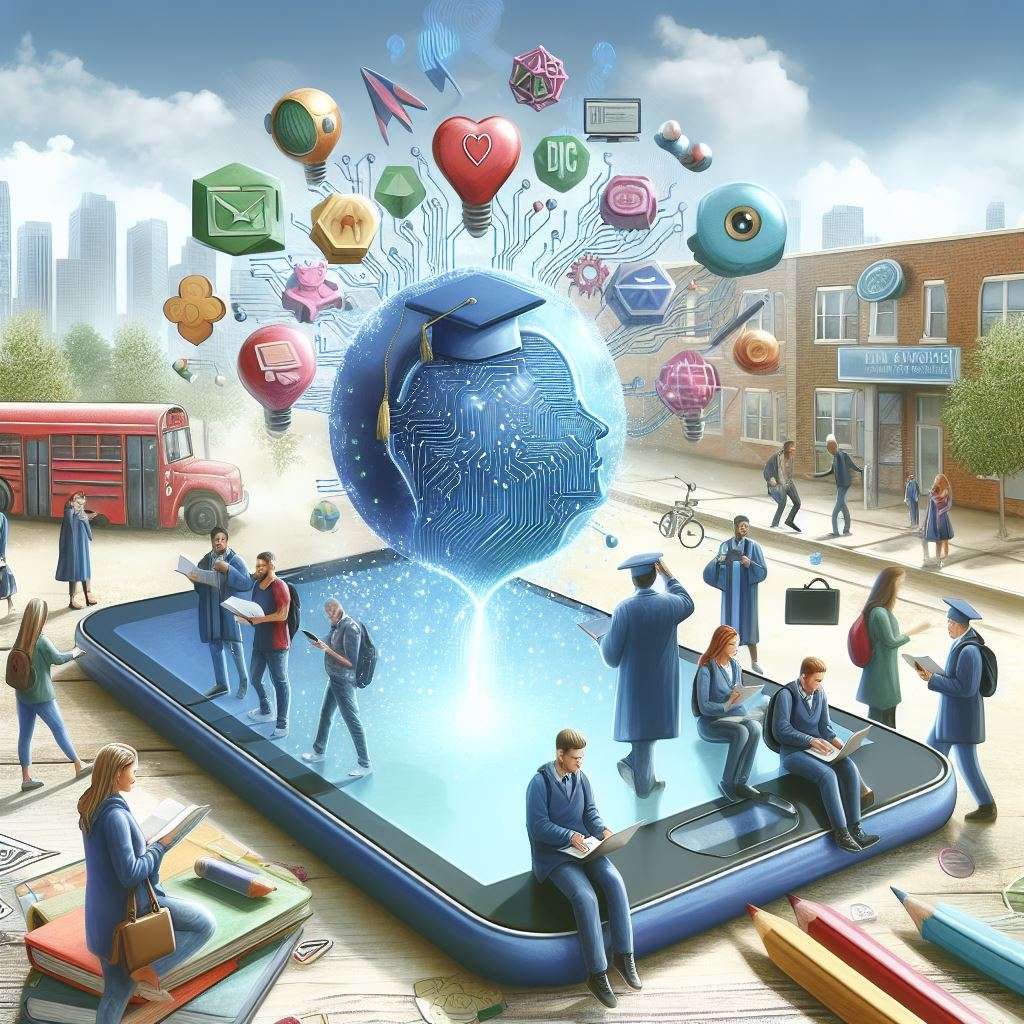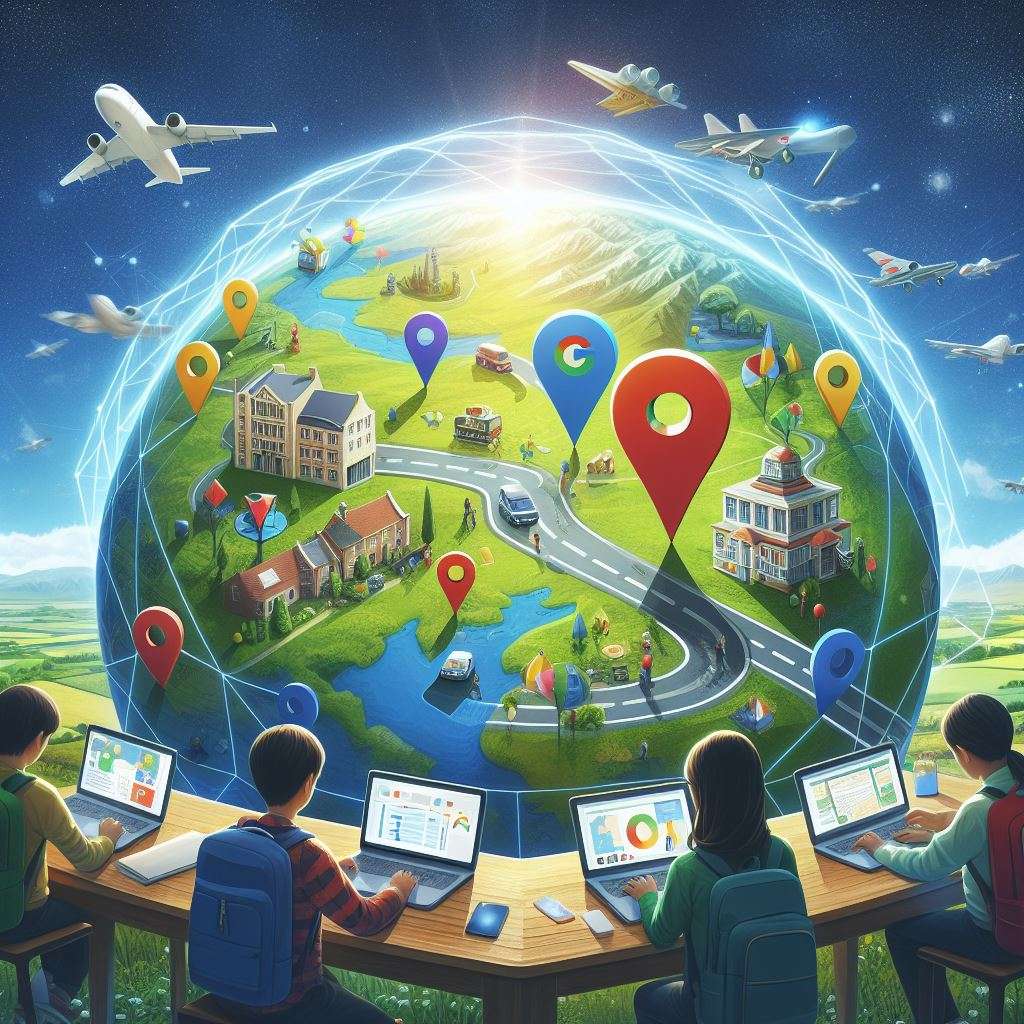The Impact of Technologies: 30 Things That Didn’t Exist 23 Years Ago
The past 23 years have witnessed an unprecedented technological revolution, reshaping nearly every aspect of human life. From communication to entertainment, commerce to transportation, innovations have fundamentally altered the way we live, work, and learn. In the realm of education, these advancements have brought about profound changes, revolutionizing teaching methods, access to information, and the learning experience itself.
Here are the list of the technologies that did not exist 23 years ago but many of them are now part of our daily life: iPhone, iPod, Facebook, YouTube, Twitter, Instagram, Android, Bitcoin, Tesla, TikTok, iPad, Gmail, WhatsApp, Shopify, Netflix streaming, Snapchat, Zoom, Chrome, Etsy, Twitch, Google Maps, Amazon Prime, Airbnb, Uber, Dropbox, LinkedIn, Reddit, Square, SpaceX, ChatGPT.

New Technologies and its impact on our life
The advent of the iPhone marked the beginning of a new era in communication and connectivity. With the proliferation of smartphones, students now have instant access to a wealth of information anytime, anywhere. The iPod revolutionized the way we consume media, paving the way for personalized learning experiences through podcasts, audiobooks, and educational apps.
Social media platforms like Facebook, Twitter, Instagram, and TikTok have not only transformed how we interact and share information but have also become powerful tools for collaboration and knowledge dissemination. Educators leverage these platforms to engage students, foster discussion, and promote digital literacy.
YouTube has emerged as a ubiquitous resource for learning, offering millions of educational videos on subjects ranging from mathematics to history to coding. Similarly, platforms like Netflix streaming and Twitch provide access to educational documentaries, tutorials, and live lectures, catering to diverse learning styles and interests.
The rise of e-commerce platforms such as Shopify and Etsy has democratized entrepreneurship, empowering students to explore their creativity and develop real-world skills in marketing, sales, and business management. These platforms serve as invaluable learning tools, allowing students to launch and manage their own online stores with minimal overhead costs.
Digital communication tools like Gmail, WhatsApp, Snapchat, and Zoom have revolutionized collaboration and distance learning, enabling students and educators to connect, communicate, and collaborate seamlessly across geographical boundaries. The COVID-19 pandemic further underscored the importance of these technologies, accelerating the adoption of online learning platforms and virtual classrooms.
The proliferation of mobile devices and tablets, epitomized by the iPad, has transformed the traditional classroom into a dynamic, interactive learning environment. With access to a myriad of educational apps, e-books, and multimedia resources, students can engage with course material in immersive and personalized ways, catering to individual learning preferences and abilities.
Navigation tools such as Google Maps have made geography and exploration more accessible, enabling students to virtually explore distant lands and cultures from the comfort of their classrooms. Similarly, platforms like Airbnb and Uber have expanded students’ horizons by facilitating travel and cultural exchange experiences, enriching their global perspectives and intercultural competence.
Technological innovations in transportation, exemplified by Tesla and SpaceX, have sparked interest in science, engineering, and sustainability among students. These companies have not only revolutionized the automotive and aerospace industries but have also inspired a new generation of innovators and problem solvers.
The advent of cryptocurrencies like Bitcoin has sparked interest in financial literacy and blockchain technology, prompting educators to incorporate these concepts into their curriculum. Similarly, platforms like Dropbox and LinkedIn have become indispensable tools for collaboration, networking, and professional development, preparing students for success in the digital economy.
Artificial intelligence (AI) technologies, such as ChatGPT, have the potential to revolutionize education by providing personalized learning experiences, automating administrative tasks, and augmenting human creativity and problem-solving abilities. As AI continues to advance, its integration into education promises to unlock new opportunities for innovation and learning.
In conclusion, the rapid pace of technological innovation over the past 23 years has had a profound impact on education, transforming teaching and learning in ways previously unimaginable. From smartphones to social media, e-commerce to AI, these advancements have revolutionized every aspect of the educational experience, empowering students to learn, create, and collaborate in ways that were once inconceivable. As we look to the future, harnessing the power of technology will be essential in preparing students for success in an increasingly digital and interconnected world.
A Journey Through Time: 23 Years of Technological Marvels
It’s hard to fathom how much the world has changed in just over two decades. If we take a trip down memory lane to the year 2001, we’d find ourselves in a world without iPhones, without Facebook, without Netflix streaming. In fact, the list of things that didn’t exist 23 years ago reads like a sci-fi enthusiast’s wish list rather than a rundown of everyday necessities. Let’s take a moment to marvel at some of the most influential technological innovations of the past two decades and reflect on how they’ve transformed our lives.
1. iPhone: Arguably one of the most iconic inventions of the 21st century, the iPhone revolutionized the way we communicate, work, and play. From its sleek design to its intuitive interface, the iPhone set a new standard for smartphones and paved the way for a mobile-centric world.
2. Facebook: What started as a college dorm project has grown into a global phenomenon, connecting billions of people around the world. Facebook not only redefined social networking but also transformed the way we share information, organize events, and stay connected with friends and family.

3. YouTube: From funny cat videos to educational tutorials, YouTube has become the go-to destination for online video content. With millions of hours of content uploaded every minute, YouTube has democratized media production and consumption, giving rise to a new generation of creators and influencers.
4. Netflix streaming: Remember the days of renting DVDs from Blockbuster? Thanks to Netflix streaming, those days are long gone. With a vast library of movies and TV shows available at the touch of a button, Netflix has revolutionized the way we consume entertainment, ushering in the era of binge-watching and on-demand viewing.
5. Tesla: Love them or hate them, there’s no denying the impact Tesla has had on the automotive industry. With its electric vehicles and groundbreaking technology, Tesla has not only pushed the boundaries of what’s possible but also paved the way for a greener, more sustainable future.
6. Bitcoin: The brainchild of an enigmatic figure known as Satoshi Nakamoto, Bitcoin introduced the world to the concept of cryptocurrency and blockchain technology. While its long-term viability remains uncertain, there’s no denying the seismic impact Bitcoin has had on the world of finance and technology.
7. TikTok: In just a few short years, TikTok has become a cultural phenomenon, captivating audiences with its short-form videos and viral challenges. With its algorithmic feed and emphasis on creativity and authenticity, TikTok has redefined social media for a new generation of users.
8. SpaceX: Founded by entrepreneur Elon Musk, SpaceX has emerged as a trailblazer in the aerospace industry, revolutionizing space travel and exploration. With its ambitious goals of colonizing Mars and making space travel accessible to all, SpaceX has captured the imagination of millions around the world.
9. ChatGPT: As artificial intelligence continues to evolve, so too does our relationship with technology. ChatGPT, an AI-powered language model developed by OpenAI, represents the cutting edge of natural language processing, enabling human-like interactions and unlocking new possibilities for communication, creativity, and collaboration.

10. Instagram: Launched in 2010, Instagram quickly became the quintessential platform for sharing visual content. With its emphasis on stunning photography, creative filters, and influencer culture, Instagram has shaped trends in fashion, food, travel, and beyond, making it a powerhouse in the world of social media marketing and branding.
11. Android: While the iPhone may have set the standard for smartphones, Android has played a significant role in democratizing mobile technology. Developed by Google, Android has become the operating system of choice for a wide range of devices, offering users a customizable and diverse ecosystem of apps and services.
12. iPad: When Apple introduced the iPad in 2010, skeptics questioned its relevance in a world dominated by laptops and smartphones. However, the iPad quickly found its niche as a versatile device for productivity, creativity, and entertainment, revolutionizing industries ranging from education to healthcare to retail.
13. WhatsApp: As one of the most popular messaging apps in the world, WhatsApp has transformed the way we communicate, allowing users to send texts, make calls, and share media across borders and time zones. With its end-to-end encryption and user-friendly interface, WhatsApp has become an essential tool for staying connected in an increasingly digital world.
14. Snapchat: Known for its ephemeral messaging and playful filters, Snapchat has captured the attention of younger audiences around the world. With its emphasis on authenticity and spontaneity, Snapchat has redefined social media storytelling, paving the way for new forms of expression and communication.
15. Zoom: In the wake of the COVID-19 pandemic, Zoom emerged as the go-to platform for remote work, virtual meetings, and online learning. With its intuitive interface and robust features, Zoom has revolutionized the way we collaborate and connect, bringing people together across distances and time zones.
16. Chrome: Google’s web browser, Chrome, has become the browser of choice for millions of users around the world. With its speed, security, and seamless integration with Google services, Chrome has revolutionized the way we browse the web, ushering in a new era of internet exploration and innovation.
17. Etsy: Catering to the handmade and vintage market, Etsy has become the ultimate destination for unique and artisanal goods. With its global marketplace and emphasis on community and creativity, Etsy has empowered makers and creators to turn their passions into thriving businesses.
18. Google Maps: From navigating city streets to exploring remote landscapes, Google Maps has become an indispensable tool for travelers, commuters, and adventurers alike. With its real-time traffic updates, street view imagery, and local business listings, Google Maps has revolutionized the way we navigate and explore the world around us.

19. Amazon Prime: Offering everything from fast shipping to streaming video to exclusive deals, Amazon Prime has transformed the way we shop and consume media. With its vast selection and convenience, Amazon Prime has become a staple in households around the world, reshaping the retail landscape in the process.
20. Airbnb: With its platform for short-term rentals and experiences, Airbnb has disrupted the hospitality industry, giving travelers a more personalized and authentic alternative to traditional hotels. From cozy apartments to unique accommodations, Airbnb has revolutionized the way we travel, opening up new possibilities for exploration and adventure.
21. Uber: Revolutionizing the transportation industry, Uber introduced the concept of ride-sharing, allowing users to summon a ride with the tap of a button. With its seamless user experience and innovative business model, Uber has transformed the way we think about mobility, offering a convenient and affordable alternative to traditional taxis.
22. Dropbox: In a world where digital storage is essential, Dropbox emerged as a pioneer in cloud-based file sharing and collaboration. With its intuitive interface and seamless syncing capabilities, Dropbox has become an indispensable tool for individuals and businesses alike, enabling users to access their files anytime, anywhere.
23. LinkedIn: As the world’s largest professional network, LinkedIn has revolutionized the way we connect and engage with colleagues, mentors, and potential employers. With its emphasis on networking and personal branding, LinkedIn has become an invaluable resource for career development, job hunting, and professional growth.
24. Reddit: Dubbed the “front page of the internet,” Reddit is a sprawling community-driven platform where users can share news, discuss topics of interest, and connect with like-minded individuals. With its diverse range of communities, or “subreddits,” Reddit has become a hub for everything from niche hobbies to global discussions, shaping internet culture in the process.
25. Square: With its sleek card readers and easy-to-use payment processing solutions, Square has transformed the way small businesses accept payments. From food trucks to pop-up shops, Square has democratized access to financial services, empowering entrepreneurs to accept credit card payments with minimal hassle or overhead.
As we reflect on these transformative technologies and innovations, it’s clear that the past 23 years have been a time of unparalleled progress and change. From the way we communicate and consume media to the way we work and travel, these inventions have reshaped nearly every aspect of our lives. And as we look ahead to the future, one can’t help but wonder what new marvels await us in the years to come. Whatever the future holds, one thing is certain: the march of progress will continue, fueled by human ingenuity, curiosity, and the relentless pursuit of innovation.
Note: the Above text and image is created by Artificial intelligence (AI) Tools.
Free online course:
AI Free Online course https://o4af.com/opportunity/ai-free-online-course/
IBM Free Online course on Introduction to Artificial Intelligence

